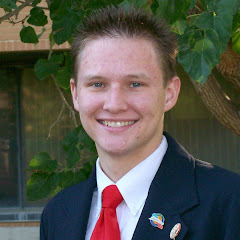Published Originally in the Utah Statesman on Mar. 24, 2008; Online at Utah Statesman.
By JP Parrish
Staff Writer
“Hallelujah; Hallelujah!” Familiar and popular sounds of joy enduring back from the 1742 performance of George Frederic Handel’s “Messiah.”
The 7th annual production of Handel’s “Messiah” will be presented at Logan’s Ellen Eccles Theatre on March 28 and 29 at 7 p.m. A special family matinee will be held at 1 p.m. on March 29. Tickets are available online and at the Ellen Eccles Theatre box office. The performance is open to all faiths.
Sponsored by Utah State Department of Communicative Disorders and Deaf Education and Cache Community Connections, the performances will be presented in English, Spanish, and American Sign Language.
John E. Ribera, director of audiology, said, “We will have over 100 singers, 50 instrumentalist and 20 theatrical interpreters for the deaf.”
This year is the first year that the family matinee will be added, he said. The matinee is educational and will give insight into Handel’s life, address concert etiquette, deaf culture, Baroque music and more.
He said proceeds from this concert series will go toward the Communicative Disorders and Deaf Education Department’s annual international humanitarian hearing health care mission. Students and faculty in audiology provide services to underprivileged men, women and children. Ribera said last year more than 300 patients were seen and 40 hearing aids were fit in Mexico.
Baroque music, according to www.dictionary.com, has, “heavy use of counterpoint and polyphony and conveyed drama and elaborate ornamentation.” Composers from this era include Bach, Handel and Vivaldi. The USU chapter of The National Association of Future Doctors of Audiology (NAFDA) Web site gives a history on the famous composer Handel. Handel was born in Germany and was composing music by age nine. Handel ran into debt and began producing Biblical pieces. The Web site says Handel’s valet often found Handel weeping as he wrote the “Messiah.” The most famous portion of the “Messiah” is the Hallelujah Chorus. The “Messiah” has been played every year somewhere in the world since its debut, ranking it among a small few.
Ribera was inspired by the motion picture, Mr. Holland’s Opus, a story about a music teacher trying to communicate with his deaf son through music. Ribera worked to develop the current three languages production. The production’s information Web site says Utah’s Theatrical Interpreters for the Deaf perform the entire presentation.
“The message, the music, and the man who composed it has always intrigued me,” Ribera said. “Because it was the darkest time in Handel’s life, when everything seemed to be against him, that he came up with a masterpiece now played all over the world. It is very inspiring and I never tire of it.”

No comments:
Post a Comment